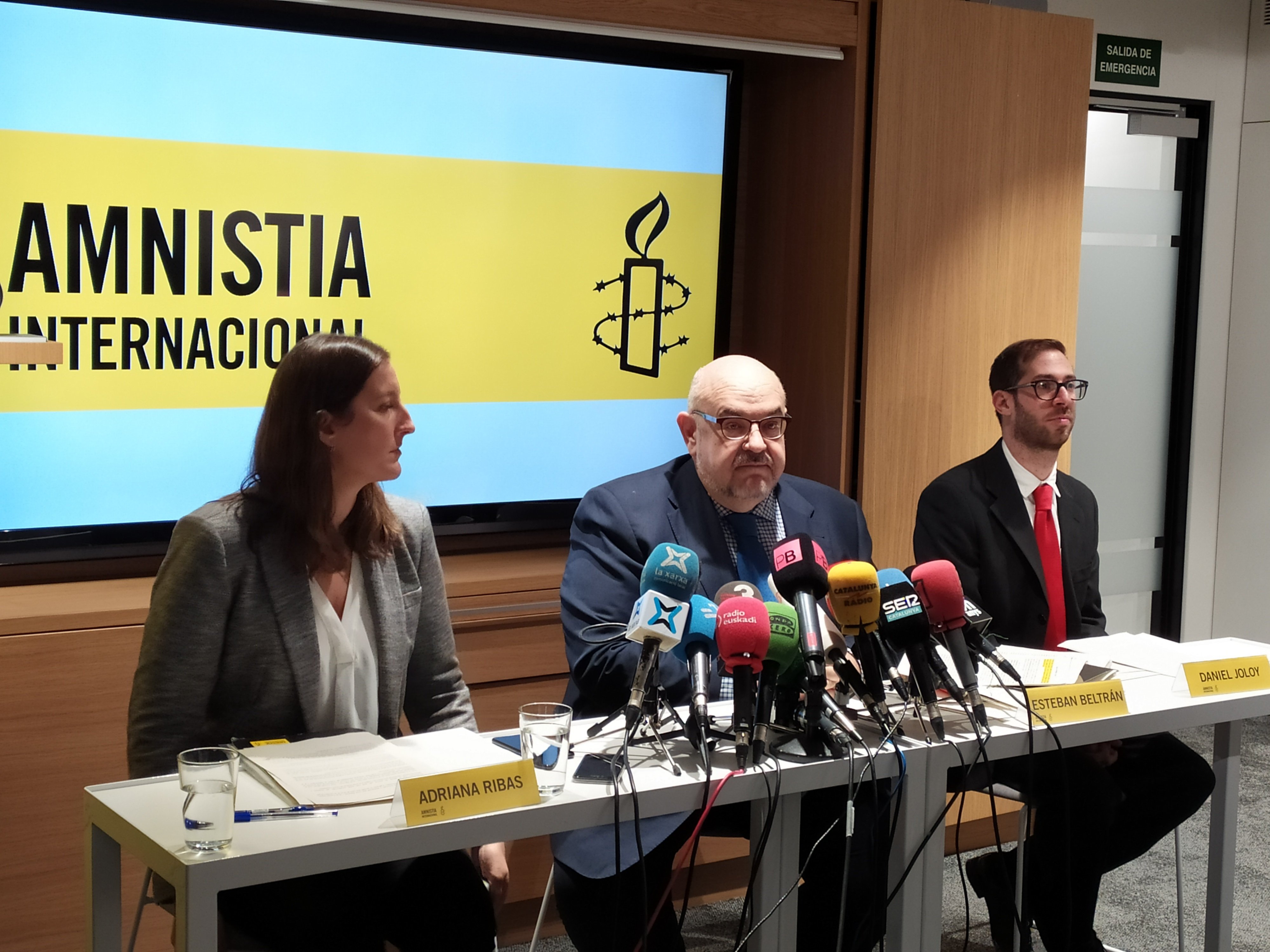For some time, Amnesty International has been keeping an eye on the Catalan independence process. On 1st October 2017, it sent observers to Catalonia to monitor the referendum; experts also attended the trial earlier this year deriving from that referendum for the NGO.
Now, a month after the sentences from that trial were released, it's issued its own verdict on the verdicts. Disproportionate, excessive, vague, dangerous: these are just some of the adjectives used in their final report.
The analysis was presented today by Amnesty Spain’s director, Esteban Beltran, Adriana Ribas, its coordinator in Catalonia and Daniel Joloy, a senior policy adviser. The report is blunt, with statements as direct as that sentencing Jordi Sànchez and Jordi Cuixart to nine years in prison "threatens rights to freedom of expression and peaceful assembly". It goes on to say that they "must be immediately released".
The speakers noted that Amnesty International isn't just an analysis body, but also is involved in "action and campaigns". They said they will work towards the prisoners' release. As part of this, they announced they would write to prosecutors at Spain's Constitutional Court so that when studying any appeals that may be presented against the verdict, "they adopt a position which aligns with international standards".
The report says that the jail term for sedition is based on "an overly broad and dangerous interpretation" of the "vague definition of the crime of sedition in the Spain’s Criminal Code". Ribas suggested this meant the convictions are "in breach of the principle of legality" and that "authorities must urgently provide an adequate remedy to this situation".
Amnesty makes it clear that they "did not find any factors suggesting that the trial as a whole was unfair" and that "the Catalan political leaders might have committed an offence that could have been legitimately prosecuted given their official positions". That said, they believe the path that was taken by the courts was problematic, stating that "bringing overly-harsh charges to acts of civil disobedience unduly restricts the right to peaceful assembly and breaches international law."
The international context
During today's press conference, Joloy expressed the NGO's "concern" over this "undue restriction of human rights". They also linked it to a wider context in which, in general, they say "countries are responding ever more severely against peaceful protests, a fact which creates a climate of fear".
This, they argue, can lead to a "risk of self-censorship by which people decide to not protest for fear of having to face high prison sentences."
Focus on the Jordis
The report focuses on Jordi Sànchez, the former president of the ANC, and Jordi Cuixart, president of Òmnium. It says that as "private citizens and leaders of civil society organizations, Jordi Sànchez and Jordi Cuixart had a right to express their opinions and to organize peaceful meetings to support the referendum and the independence of Catalonia."
Amnesty emphasises that "peaceful civil disobedience is protected under international human rights law" and that the "Supreme Court failed to demonstrate that the imposition of such severe penalties was proportionate to the peaceful acts of which they were accused".
They quote Beltran as saying that the legislative branch in Madrid "must urgently revise the definition of the crime of sedition to avoid criminalizing peaceful acts of civil disobedience or unduly restricting freedom of peaceful assembly or expression."

